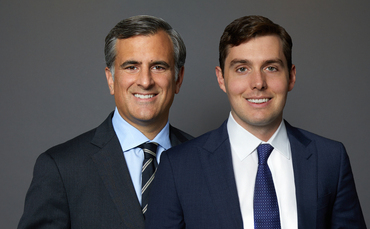Despite the tailwinds renewables are enjoying today, we believe 2050 net-zero goals are largely unrealistic, given grid reliability and structural supply chain challenges.
This delayed energy transition will result in a long, useful life for conventional generation.
ESG scores decline globally for second year in a row
Specifically, we believe natural gas will remain critically important for home heating and power generation.
In essence, the market is understating the cash flow durability of traditional generation. Investors must therefore strike a delicate balance between investing for the future and appropriately valuing fossil-based infrastructure today.
Difficulties with decarbonisation
Traditional energy sources, such as oil and gas, will play an important role for decades to come, as immediately shifting to net zero would be impractical for a number of reasons.
Firstly, renewables have low and unpredictable average outputs.
While nuclear plants are almost constantly running, weather patterns such as cloud cover or lack of wind impact the availability of renewables. This issue could be solved in the future with long duration energy storage, an investment opportunity we continue to closely monitor.
Additionally, the retirement of substantial conventional power generation comes at a time of increasing power demand from the electrification of transportation. One new electric vehicle is often the equivalent of adding two new houses to the grid.
Meanwhile, the space needed to construct new resources is a challenge, as there are difficulties finding optimal real estate for wind and solar generation.
Another question concerns the availability of resources required for renewables. While metals such as copper, polysilicon, silver, zinc and lithium are critical in renewable energy and battery storage construction, these scarce resources are often mined in geopolitically unstable regions, such as China and Russia.
Reaching net zero would also remove roughly 26 times more rare earth metals than we are using today.
Politicians have generally demonstrated strong support for renewables. However, future administrations could potentially be less constructive.
The Biden administration has maintained President Trump's stringent tariffs on imported solar panels, while the European Union has included gas and nuclear in the region's sustainable finance taxonomy.
ESG Blog: Anti-ESG investing bill to push Biden towards first veto
Although power generated from renewables is generally cheaper to produce, there can be higher costs associated with mass adoption of clean energy.
The challenges with scale stem from the new generation typically requiring new transmission, while existing sites already have transmission in place.
Further, since renewables produce power less frequently than conventional generation, the world will need more total generation to support the same level of demand - and upfront costs will ultimately be borne by utility customers.
Balance is best
The prolonged energy transition will create ongoing challenges for companies straddling the line between investing for a low-carbon future while maintaining the infrastructure needed to support traditional energy.
However, there is a place in the market for the renewable developers, who will benefit from the transition; and the owners of conventional resources, which will generate strong and durable cash flows for investors. Two subsectors where we see considerable opportunity are electric utilities and midstream energy.
Electric utilities will not only be the largest owners of renewable generation, but they will also be tasked with upgrading the electric grid to accommodate and integrate new energy resources.
Transmission and grid modernisation will create substantial investment opportunities and higher earnings power for the sector.
As Germany, France and Japan are assessing whether to extend the lives of their nuclear fleets, select utilities may also benefit from extending the lives of existing conventional assets.
Specifically, we think there is a long runway for the use of natural gas in both power generation and home heating. As a result, midstream energy companies are well positioned to expand pipeline infrastructure networks.
ESG funds on offer grew 89% in 2022 as fees rose
The midstream sector should also benefit from opportunities as the world decarbonises, including from the usage and blending of renewable natural gas - which is created from biogas - with natural gas streams. Another opportunity involves transporting hydrogen through pipelines.
These are early days for hydrogen transportation, however, and midstream companies will need to understand how to repurpose their legacy assets to accommodate lower carbon fuels.
Midstream companies are also investing in carbon capture, utilisation and storage (CCUS) technology, which captures carbon dioxide emissions and sends them via pipeline to be stored deep underground or utilised and turned into a low-carbon fuel. Early movers in clean fuel and CCUS are well positioned to participate in growth from the energy transition, while also generating strong cash flows from their existing asset bases.
The world is undeniably moving toward a lower-carbon economy, but the pace of the transition remains in question. In the meantime, it is critical that politicians and business leaders - along with investors - understand traditional and renewable energy need to work hand-in-hand to solve the world's energy problems.
Benjamin Morton is head of global infrastructure and Christopher DeNunzio is senior utilities analyst at Cohen & Steers.


